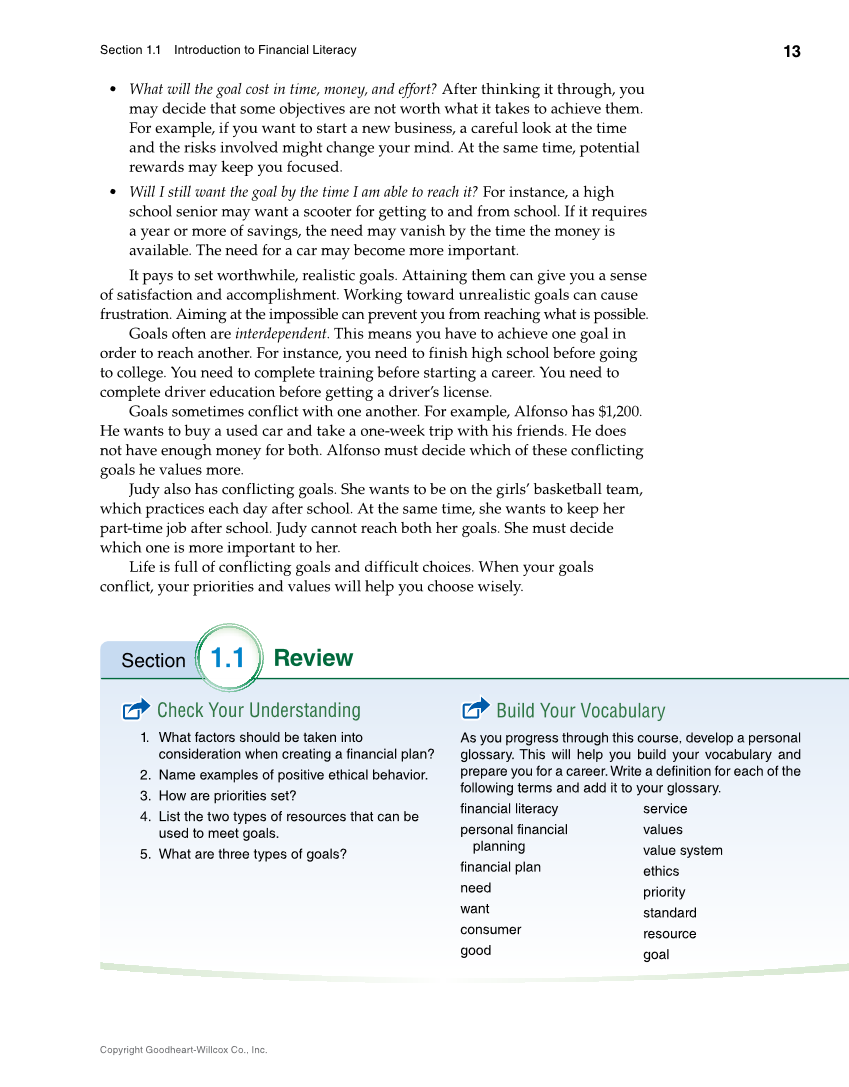Copyright Goodheart-Willcox Co., Inc. 13 Section 1.1 Introduction to Financial Literacy • What will the goal cost in time, money, and effort? After thinking it through, you may decide that some objectives are not worth what it takes to achieve them. For example, if you want to start a new business, a careful look at the time and the risks involved might change your mind. At the same time, potential rewards may keep you focused. • Will I still want the goal by the time I am able to reach it? For instance, a high school senior may want a scooter for getting to and from school. If it requires a year or more of savings, the need may vanish by the time the money is available. The need for a car may become more important. It pays to set worthwhile, realistic goals. Attaining them can give you a sense of satisfaction and accomplishment. Working toward unrealistic goals can cause frustration. Aiming at the impossible can prevent you from reaching what is possible. Goals often are interdependent. This means you have to achieve one goal in order to reach another. For instance, you need to finish high school before going to college. You need to complete training before starting a career. You need to complete driver education before getting a driver’s license. Goals sometimes conflict with one another. For example, Alfonso has $1,200. He wants to buy a used car and take a one-week trip with his friends. He does not have enough money for both. Alfonso must decide which of these conflicting goals he values more. Judy also has conflicting goals. She wants to be on the girls’ basketball team, which practices each day after school. At the same time, she wants to keep her part-time job after school. Judy cannot reach both her goals. She must decide which one is more important to her. Life is full of conflicting goals and difficult choices. When your goals conflict, your priorities and values will help you choose wisely. Check Your Understanding 1. What factors should be taken into consideration when creating a financial plan? 2. Name examples of positive ethical behavior. 3. How are priorities set? 4. List the two types of resources that can be used to meet goals. 5. What are three types of goals? Build Your Vocabulary As you progress through this course, develop a personal glossary. This will help you build your vocabulary and prepare you for a career. Write a definition for each of the following terms and add it to your glossary. financial literacy personal financial planning financial plan need want consumer good service values value system ethics priority standard resource goal Review Section 1.1
